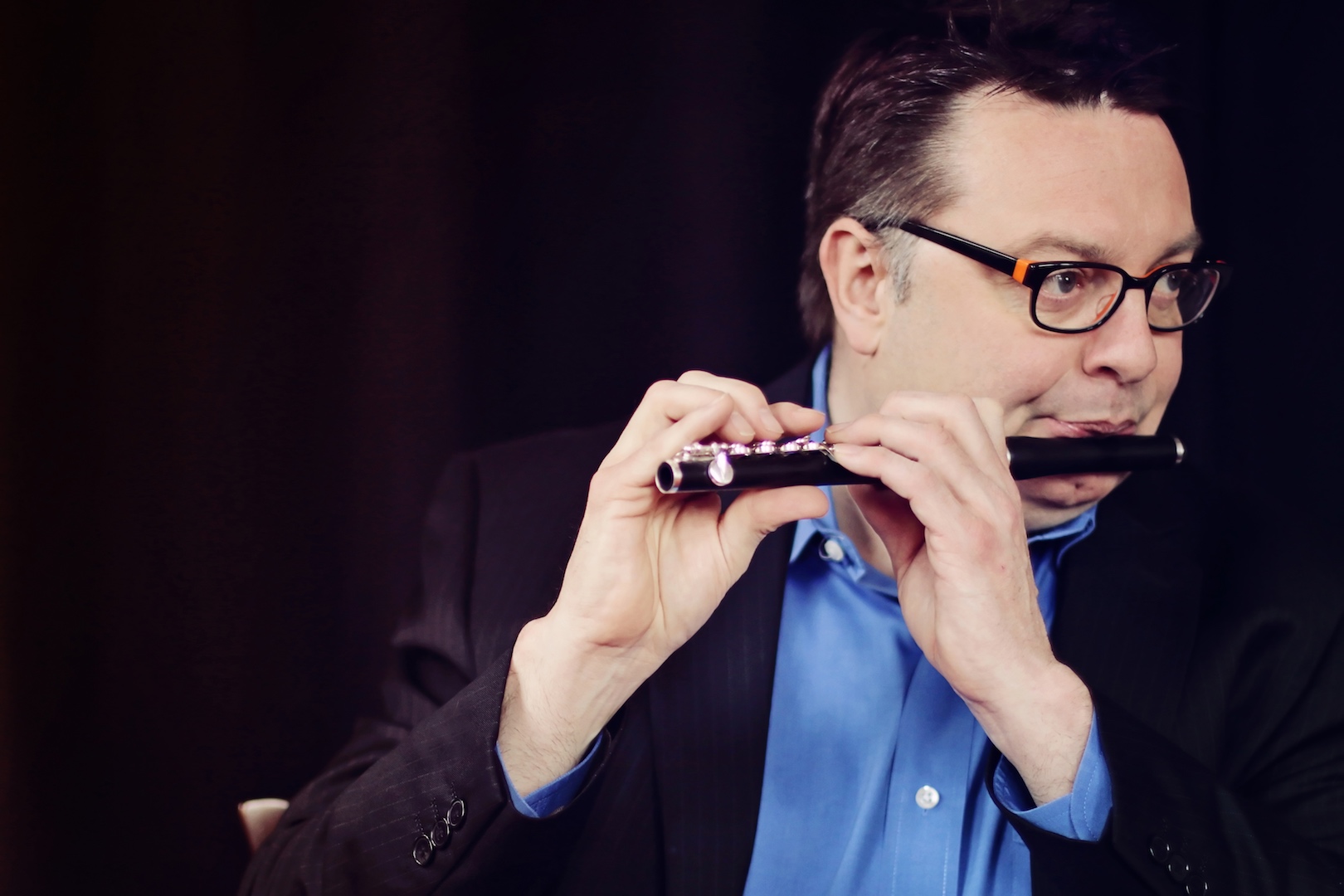I used to have severe performance anxiety when I was in college. I thought that the professors were waiting for me to mess up during my performances. I would literally be backstage throwing up. It was hard to get through a performance without feeling sick on stage. I was creating all this anxiety in my head.
It took many years of practicing performing in front of people to get to the point of this level of “normal” comfort on stage. Before my recent performance, I told myself, “I’m not going to practice it. I already know how to play it.” Unnecessary practicing will get me anxious. Before the performance, I did my regular warmup routine and put my piccolo away. I just trusted it was going to be a great performance.
When I started working at DSO I remember sitting on the stage and not knowing if I can get through a piece. Now many years later I play Tchaikovsky’s Fourth Symphony in front of 2,000 people I am not even nervous.
In order to achieve this level of comfort, you need to be 200% prepared. Geoffrey Gilbert, a teacher of James Galway, William Bennett, and Trevor Wye, always said “you must be 200% prepared. Always practice the last notes of your piece a million times.” People usually forget to do it. They practice everything else, and they get to the last bit, and they forget to practice that. A great performer will be always able to play the final notes flawlessly.
If you are not 200% prepared you are betting that maybe when you are performing it’ll just magically happen. Sometimes it works but you cannot count on that. The lack of complete readiness will get you worried. That is not 200% prepared.
Sharon Sparrow writes in her book “6 weeks to finals” how to be 200% prepared. You have to know where your deficiencies are. Don’t practice what you can already play well. Before starting to play, assess, what do you really need to work on. Try to figure out how to get to the desired level. If you spend all your time practicing what you are glorious at, the deficiencies will crop up during your performances.
Let’s assume you have practiced a lot and you feel 200% ready. You played in a lesson and a studio class well, but suddenly during your performance it starts to fall apart. There’s a big difference between being prepared 200% in your comfort zone and being able to play in front of a large audience or judges. In our comfort zone we think, “Oh, I got this,” and then we get to an audition and suddenly we’re not in our comfort zone.
Being 200% prepared means performing in uncomfortable situations. Put yourself in your comfort zone by creating uncomfortable situations. Start with low stress and low-risk situations Play in a church, elementary school, nursing home, or in front of your roommate. Perform as much as possible. After receiving positive reinforcement create more difficult performance situations.
During my college years I learned Rodrigo’s flute concerto. I practiced it for a long time. I started feeling well prepared as long as I was in my comfort zone. In order to take it to the next level I decided to play in front of someone who is very intimidating.
There was an amazing, but very intimidating saxophone teacher at the University of Michigan- Donald Sinta. One morning I knocked on his door and asked. “Can I play this concerto for you? He answered, “Come Tomorrow at 8:30 AM”. When I played for him the next morning I was scared out of my mind, but I got through it. By putting myself in an uncomfortable situation, I improved my performances in adverse situations. Later that year I won a big concerto competition with the Flint Symphony.
On another occasion, during my college years, I got to play at the Denver flute convention. It was a competition of orchestral excerpts in front of six famous flutists. Once I learned all the excerpts really well, I’d go into the recital hall in my school and pretend I was at the convention. I would visualize Julius Baker, the flutist New York Philharmonic, sitting at the judges’ table. The first time I played through it, I was literally shaking and sweating, and I couldn’t even get through it. I was like, “Oh my gosh. I have to do this in four weeks. I’m going to die.” I kept doing it, over and over.
four weeks later I stepped on the stage at the flute convention and thought, “Hey, Julius. I know you. You’re an old friend. I’ve been looking at you every day!” Visualization is a great way of preparing yourself for those uncomfortable situations. You can’t hire the committee of the Detroit Symphony Orchestra to sit behind a screen in your house or to come listen to you rehearse. Visualization has to feel real. It will give you a chance to combat those nerves.
If you are completely prepared, ask yourself “what are all these nerves about?” Find out what your fear is. Write them on a paper and turn them into desires.
For example, if you are afraid of cracking a high F. Instead of thinking “Oh, here it comes. I’m going to crack! It’s going to crack!!”, think of positive mental cues for the high F. Think “ Breathe slowly, open your throat. Breathe through your diaphragm. Keep your upper lip a little more relaxed than you want it to be.”
Start practicing your positive cues and the high F will be smooth and soft.
Positive mental cues will get you positive results. Negative mental cues will probably produce negative results. You have to block out those thoughts that create self-doubt and lower confidence. “This is too hard for me. I can’t.” Those kinds of thoughts come when we’re not prepared. If you are 200% prepared, you have no reason for those thoughts and doubts.
We try to turn our anxiety down, but it is very hard at the beginning. A good way for learning to control your anxiety is to practice turning it up first. Get in front of people and say to yourself “Can I make myself more nervous right now?” I encourage you when you’re in a band and you’re a little bit anxious about the solo that’s coming up, make yourself more nervous. Turn your anxiety up a lot. Then you will realize, “I can control my anxiety. I just turned it up.” Now try to turn it back down. Keep playing this mental game. Soon you will realize “Wow, I just did that. I can control my anxiety level”. Your thoughts and your directives to your body are causing it.
For me this was a breakthrough moment. I realized that I’m actually the one controlling this.
#performance

Jeff Zook
Jeffery Zook has been a member of the Detroit Symphony Orchestra flute section since 1992. His formal musical studies began at the Interlochen Arts Academy and continued at the University of Michigan. With additional studies in England, Mr. Zook attended the Royal Northern College of Music in Manchester and received the coveted Recitalists’ Diploma from the Royal Academy of Music in London. His teachers have included William Bennett, Trevor Wye, Judith Bentley, Jacqueline Hofto, and former DSO piccoloist Clement Barone.



Comments are closed.